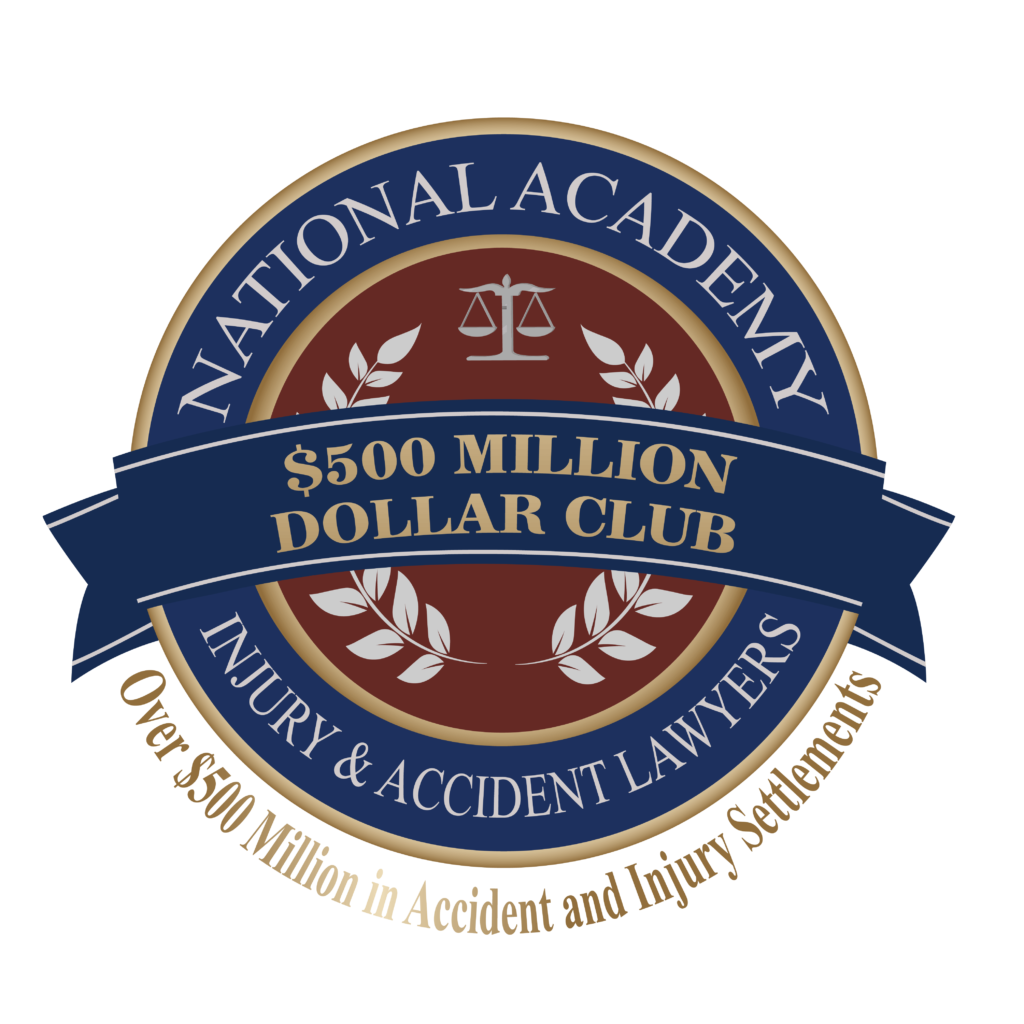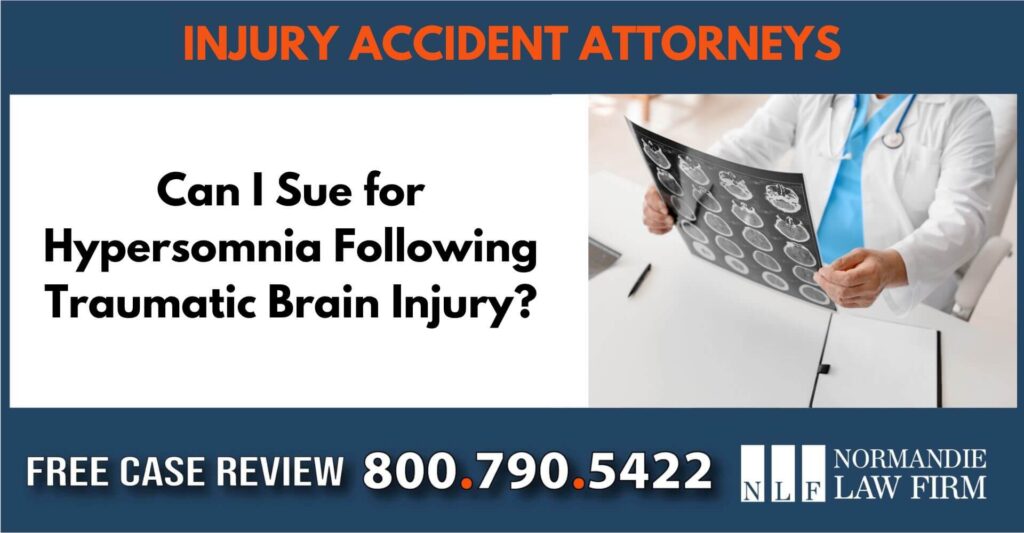Yes, you can sue for a brain injury that results in hypersomnia, which is a condition where you are unable to stay awake or feel energized in spite of getting enough sleep. Those who are afflicted with his illness are in a constant state of fatigue and feel a loss of energy that impacts their ability to work and perform basis tasks. Signs and symptoms of hypersomnia include:
- Needing to sleep multiple times during the day and having trouble staying awake
- Still being sleepy in spite of having 10 or more hours of sleep
- Having difficulty waking up in the morning or after naps, to the point where you may seem confused or aggressive (“sleep drunkenness”)
- Naps during the daytime do not help you feel refreshed and alert
- Problems with your mood, like irritability, anxiety, and restlessness
- Inability to focus or concentrate on a task
- Memory problems and/or slow thinking
- Frequent headaches
- Hallucinations
- Loss of appetite
Hypersomnia can happen from psychiatric medications and pre-existing health conditions. However, some people end up with the disorder after a concussion or some other injury to the brain. Traumatic brain injury (TBI) can damage your brain’s ability to control sleep and wake cycles, or disrupt the chemicals that regulate sleep. As a result, you may develop excessive sleepiness after an accident, also known as post-traumatic hypersomnia.
If you developed sleep problems following a car crash or another accident caused by someone else, you may have the right to file a claim for monetary damages. Alternatively, you may have been diagnosed with hypersomnia after assault and battery, which is another common cause of sleeping far more than normal. If you are in need of a lawyer that can help you sue for a sleep disorder, contact our office and schedule a free case review.

Our Recent Verdicts and Settlements
$1.5 Million
$1.5 Million
$2 Million
$1.5 Million
$734,851
$600,000
Hypersomnia after a Car Accident
If you were recently in a car crash or another type of motor vehicle accident, you may be wondering, “Is it normal to have sleeping problems after hitting my head in a car accident?”
Yes, it’s quite common to develop unusual patterns when it comes to sleeping after an accident where you experience trauma to the head. With car accidents, there is a high risk of hitting your head against the dashboard or steering wheel. Sometimes, brain injuries can happen from the impact of your face hitting the airbag. You can even have a brain injury that’s connected to whiplash, a neck injury where your head jerks back and forth violently. If the brain hits the inside of the skull with enough force during these movements, it can damage certain portions of the brain, which may be why you are having sleep issues.
Brain Injury Resulting in Hypersomnia after a Slip and Fall
Do you find yourself oversleeping after a slip and fall accident, but you are still having trouble staying awake or being alert enough to complete the most basic tasks? As with car accidents, slip and falls can also damage portions of the brain when there is an impact to the head. This is particularly true if you have a skull fracture, which indicates a serious blow to the head that requires immediate medical attention.
Keep in mind that even those with relatively mild brain injuries, like concussions, may suffer with hypersomnia after a slip and fall. Essentially, any accident where the head is traumatized can affect the brain’s ability to regulate sleep cycles. This is why it’s important to see a doctor right away if you were injured from a slip and fall. Unlike broken bones and lacerations, it won’t be obvious to you that you have a brain injury from a fall-related accident. But early intervention in the form of medical testing and treatments can help you manage your symptoms and regain as much of your health as possible.
Can You Get Hypersomnia after a Physical Assault?
Yes, being beaten up can cause you to develop hypersomnia if you suffered an injury to your head. This can happen in many ways, like being punched or kicked, being hit with an object, or being slammed to the ground. In these instances, you may have the option of filing a hypersomnia following traumatic brain injury lawsuit. However, these cases are very complicated, as there may be multiple entities you can sue.
There is, of course, the assailant, i.e., the person that assaulted you. But if the person harmed you within the scope of their job duties, you may have grounds to file a lawsuit against the employer. Perhaps you were injured from excessive violence by a security guard at a store, shopping mall, or hotel. Or, you are a victim of police brutality by a law enforcement officer who failed to exercise good judgment. We can help you explore the option of suing a business, company, or government entity that employs the individual.
Average Case Value of a Traumatic Brain Injury Lawsuit
Any lawsuit involving brain injury is likely to result in settlements of 6 to 7 figures, usually in the range of $500,000 to $2,500,000. The actual amount you are entitled to is based on the extent of your injury and the complications they cause in your life. The act of negligence or misconduct by the defendant also has an impact on how much you can recover from a sleep disorder caused by traumatic brain injury lawsuit. This is why you often see payments that exceed $1,000,000 for assault and battery cases, due to their brutal nature and the fact that the other person willfully used violence without legal justification.
Sometimes, the extent of physical and emotional harm to an individual is significant enough to merit payments in excess of $10,000,000. While 8-figure awards are quite rare, it goes to show the serious nature of a traumatic brain injury by careless or reckless conduct.
Suing for TBI – How Much Time Do I have?
A lawsuit for hypersomnia following an accident must be filed within 2 years of when you suffered the injury. This wording is important to note, as most people assume that the statute of limitations begins on the date of the accident. This is true in most cases, but there are exceptions for illnesses and disorders that are not obvious right away, like traumatic brain injury. Thus, you can also start the 2-year window on the date of discovery, meaning when you are diagnosed with TBI or a health condition related to brain injury after a car accident, slip and fall, or assault and battery.
If the entity liable for your injury is a public entity, like a police department or public school district, you will need to file a government liability claim within 6 months. You should have a government claims lawyer assisting you, as there is a lot to know about these lawsuits aside from the deadline of 6 months. It’s very easy to make mistakes when it comes to suing the government, thereby negating your right to compensation for your medical bills and other expenses.
Free Second Opinion
Some of the people that contact us have questions and concerns, even though they already have an attorney who is handling their case. This is no different than patients who wish to discuss their diagnosis or treatment option with another doctor. With a legal case, you may want to verify that you are getting a good settlement offer from the insurance company. Or, you may have problems with your current law firm and want advice on switching lawyers in the middle of a case. No matter what, our team of personal injury lawyers are here for you 24/7, so please don’t hesitate to schedule a free second opinion.
Contact a Brain Injury Lawsuit Attorney
We understand the pain and struggle of living with an invisible injury, like hypersomnia after a slip and fall, auto accident, or physical violence. The financial costs alone are overwhelming, and it’s unacceptable that you should have to pay for someone else’s actions. That’s the principle behind everything we do here at Normandie Law Firm, where you can find representation from a lawyer with decades of experience in sleep disorders caused by accidents and assault and battery.
If you decide to hire us, you will never have to worry about the cost of legal fees. We will provide you with free legal services until we succeed in bringing you compensation from a successful lawsuit. At that point, your settlement from the defendant includes our expenses, and this is the only way for us to get paid. In essence, we make nothing if we fail to win your case – guaranteed.
For a detailed explanation of your rights and legal options, call us right away to schedule a free consultation.
Other Pages on Our Website Related to This Topic
Alzheimer’s Caused by Brain Injury after an Accident – Can I Sue?
How Long Does it Take to Recover from a Brain Injury
Failure to Diagnose Treat Dehydration Resulting in Brain Injury – Death – Amputation













